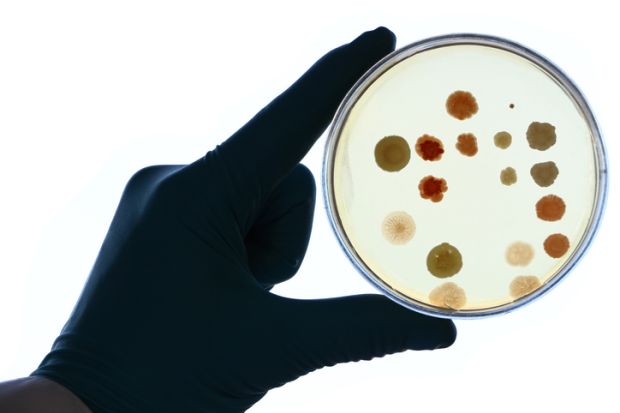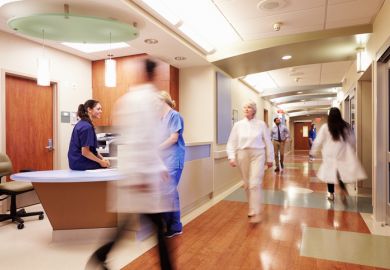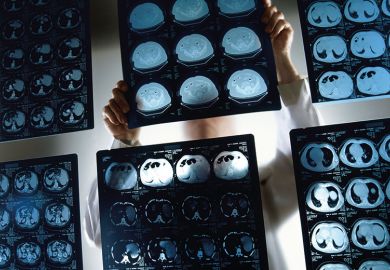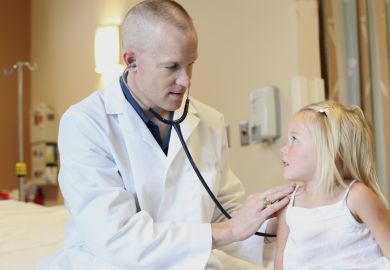Traditional teaching methods often offer poor preparation for the complex challenges clinicians are likely to face.
That is the view of Monika Oli, senior lecturer in microbiology and cell science at the University of Florida, whose classes include many undergraduates who plan to go on to study medicine or nursing. Her discipline, she told Times Higher Education, often relied on traditional techniques that may enable people to identify a few common strains held in most labs, yet this offered “a completely artificial scenario which would never happen in the real world”.
Clinicians, for example, could find it “difficult to distinguish between Rocky Mountain spotted fever and Lyme disease and some other diseases which have a very similar manifestation of symptoms”, so you can’t “just open page 510 of the textbook and diagnose the patient...You have to think outside the box, put yourself in the patient’s position, include other pieces of information about diet and exercise and immune systems.”
To model this process, Dr Oli has incorporated into her courses a tool known as Gideon (Global Infectious Diseases and Epidemiology Online Network), normally used by clinicians for diagnostic purposes, which includes details of more than 2,000 bacteria, microbacteria, yeasts and fungi. Her classes of 36 students are given a sample, she explained, and then “apply a set of 10 different tests, generate the data and get Gideon to provide a diagnosis”. If it comes up with several options, students can run additional tests and use “critical thinking to work through the whole process”.
The Covid crisis has made the issues feel far more urgent but also inevitably shifted teaching online. As part of her new curriculum, Dr Oli has developed what she calls “the Gideon diagnostic game”, where students takes on roles such as patient, doctor, lab technician and so on.
The “patient” has to choose a disease, look up the symptoms and describe them to the “doctor”. After that, said Dr Oli, “the doctor has to work it out, order tests from a clinical lab, set out a report for the centre for disease control asking for this, that and the other test. After the tests, they go back to the patient, tell them if they are going to survive or die and come up with a treatment plan. They suggest antibiotics, vaccines if any are available – and then follow up with the patient after a month to see if they have survived or not.”
Although the central focus is on the technical challenges of diagnosis, students enjoy acting out their roles and so confront some of the human dimensions of medicine.
“We see some really interesting performances from the students,” Dr Oli recalled. “Some of them chose sexually transmitted diseases and go into elaborate information exchanges…It’s important, because physicians are often uncomfortable in situations they are not used to.”
It even proved possible for Dr Oli to introduce highly topical role playing into her midterm exams: “Many Covid patients get secondary infections that are bacterial, so I built my whole exam around it. Students were given data and had to use Gideon to analyse the secondary infection, how it should be treated, whether it will contribute to Covid resistance, so the role play continued even during the exams.”
Register to continue
Why register?
- Registration is free and only takes a moment
- Once registered, you can read 3 articles a month
- Sign up for our newsletter
Subscribe
Or subscribe for unlimited access to:
- Unlimited access to news, views, insights & reviews
- Digital editions
- Digital access to THE’s university and college rankings analysis
Already registered or a current subscriber?








